| |||||
| Decades: | |||||
|---|---|---|---|---|---|
| See also: | Other events of 1990 List of years in Libya | ||||
| |||||
| Decades: | |||||
|---|---|---|---|---|---|
| See also: | Other events of 1990 List of years in Libya | ||||

Al-Qaeda is a pan-Islamist militant organization led by Sunni jihadists who self-identify as a vanguard spearheading a global Islamist revolution to unite the Muslim world under a supra-national Islamic caliphate. Its membership is mostly composed of Arabs but also includes people from other ethnic groups. Al-Qaeda has mounted attacks on civilian, economic and military targets of the U.S. and its allies; such as the 1998 US embassy bombings, the USS Cole bombing, and the September 11 attacks. The organization is designated as a terrorist group by NATO, the UN Security Council, the European Union, and various countries around the world.

The Detroit Tigers are an American professional baseball team based in Detroit. The Tigers compete in Major League Baseball (MLB) as a member of the American League (AL) Central Division. One of the AL's eight charter franchises, the club was founded in Detroit as a member of the minor league Western League in 1894 and is the only Western League team still in its original city. They are also the oldest continuous one name, one city franchise in the AL. Ty Cobb, who played his first season with Detroit in 1905, later became the first Tiger to be inducted into the National Baseball Hall of Fame in 1936.
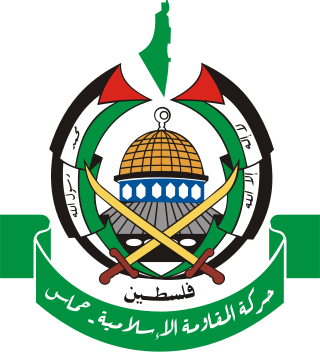
The Islamic Resistance Movement, abbreviated Hamas, is a Palestinian nationalist Sunni Islamist political organisation with a military wing called the Ezzedeen Al-Qassam Brigades. It has governed the Israeli-occupied Gaza Strip since 2007.
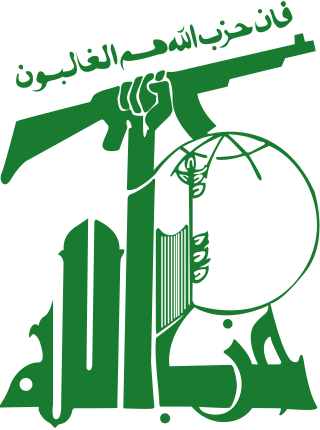
Hezbollah is a Lebanese Shia Islamist political party and paramilitary group. Hezbollah's paramilitary wing is the Jihad Council, and its political wing is the Loyalty to the Resistance Bloc party in the Lebanese Parliament. Its armed strength was assessed to be equivalent to that of a medium-sized army in 2016.

Osama bin Laden was a Saudi Arabian-born Islamist dissident and militant leader who was the founder and first general emir of al-Qaeda. Ideologically a pan-Islamist, he participated in the Afghan jihad against the Soviet Union and supported the activities of the Bosnian mujahideen during the Yugoslav Wars. After issuing his declaration of war against the Americans in 1996, Bin Laden began advocating attacks targeting U.S. assets in several countries, and supervised al-Qaeda’s execution of the September 11 attacks in the United States in 2001.

Alfredo James Pacino is an American actor. Considered one of the greatest and most influential actors of the 20th century, Pacino has received numerous accolades including an Academy Award, two Tony Awards, and two Primetime Emmy Awards, achieving the Triple Crown of Acting. He has also received four Golden Globe Awards, a BAFTA, two Screen Actors Guild Awards, and was honored with the Cecil B. DeMille Award in 2001, the AFI Life Achievement Award in 2007, the National Medal of Arts in 2011, and the Kennedy Center Honors in 2016.

The United Arab Emirates (UAE), or simply the Emirates, is a country in West Asia, in the Middle East, at the eastern end of the Arabian Peninsula. It is a federal, elective monarchy composed of seven emirates, with Abu Dhabi as its capital. It shares land borders with Oman to the east and northeast, and with Saudi Arabia to the southwest; as well as maritime borders in the Persian Gulf with Qatar and Iran, and with Oman in the Gulf of Oman. As of 2024, the UAE has an estimated population of over 10 million, of which 11% are Emiratis; Dubai is the most populous city and is an international hub. Islam is the official religion and Arabic is the official language, while English is the most spoken language and the language of business.

Hassan Nasrallah was a Lebanese cleric and politician who served as the secretary-general of Hezbollah, a Shia Islamist political party and militia, from 1992 until his assassination in 2024.

Al Arabiya is a Saudi state-owned international Arabic news television channel. It is based in Riyadh and is a subsidiary of MBC Group.

Saudi Arabia, officially the Kingdom of Saudi Arabia (KSA), is a country in Western Asia. It covers the bulk of the Arabian Peninsula and has a land area of about 2,150,000 km2 (830,000 sq mi), making it the fifth-largest country in Asia, the largest in the Middle East, and the 13th-largest in the world. It is bordered by the Red Sea to the west; Jordan, Iraq, and Kuwait to the north; the Persian Gulf, Bahrain, Qatar and the United Arab Emirates to the east; Oman to the southeast; and Yemen to the south. The Gulf of Aqaba in the northwest separates Saudi Arabia from Egypt and Israel. Saudi Arabia is the only country with a coastline along both the Red Sea and the Persian Gulf, and most of its terrain consists of arid desert, lowland, steppe, and mountains. The capital and largest city is Riyadh; other major cities include Jeddah and the two holiest cities in Islam, Mecca and Medina. With a population of almost 32.2 million, Saudi Arabia is the fourth most populous country in the Arab world.
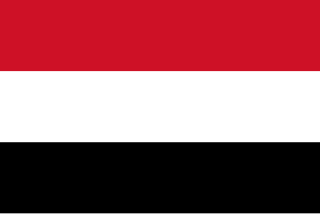
Yemen, officially the Republic of Yemen, is a country in West Asia. Located in southern Arabia, it borders Saudi Arabia to the north, Oman to the northeast, the Red Sea to the west, and the Indian Ocean to the south, sharing maritime borders with Eritrea, Djibouti and Somalia across the Horn of Africa. Covering roughly 528,000 square kilometres, with a coastline of approximately 2,000 kilometres, Yemen is the second largest country on the Arabian Peninsula. Sanaa is its constitutional capital and largest city. Yemen's estimated population is 34.7 million, mostly Arab Muslims. It is a member of the Arab League, the United Nations, the Non-Aligned Movement and the Organisation of Islamic Cooperation.

The September 11 attacks, commonly known as 9/11, were four coordinated Islamist terrorist suicide attacks carried out by al-Qaeda against the United States in 2001. On that Tuesday morning, 19 terrorists hijacked four commercial airliners scheduled to travel from the East Coast to California. The first two teams of hijackers crashed the first two planes into the Twin Towers of the World Trade Center in New York City, while the remaining hijackers aimed the next two flights toward targets in or near Washington, D.C., in an attack on the nation's capital. The third team succeeded in striking the Pentagon, the headquarters of the U.S. Department of Defense in Arlington County, Virginia, while the fourth plane hijacked by the fourth team crashed in rural Pennsylvania during a passenger revolt. The September 11 attacks killed 2,977 people, making it the deadliest terrorist attack in history. In response to the attacks, the United States waged the multi-decade global war on terror to eliminate hostile groups deemed terrorist organizations, as well as the foreign governments purported to support them, in Afghanistan, Iraq, Syria, and several other countries.
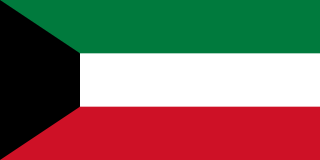
Kuwait, officially the State of Kuwait, is a country in West Asia. It is situated in the northern edge of the Arabian Peninsula at the tip of the Persian Gulf, bordering Iraq to the north and Iran with the Persian Gulf and Saudi Arabia to the south. With a coastline of approximately 500 km (311 mi), Kuwait also shares a maritime border with Iran. Most of the country's population reside in the urban agglomeration of Kuwait City, the capital and largest city. As of 2023, Kuwait has a population of 4.82 million, of which 1.53 million are Kuwaiti citizens while the remaining 3.29 million are foreign nationals from over 100 countries. In 2024 the population of Kuwait has risen to 4.93 million which is a population increase of 1.98% from 2023.

Qatar, officially the State of Qatar, is a country in West Asia. It occupies the Qatar Peninsula on the northeastern coast of the Arabian Peninsula in the Middle East; it shares its sole land border with Saudi Arabia to the south, with the rest of its territory surrounded by the Persian Gulf. The Gulf of Bahrain, an inlet of the Persian Gulf, separates Qatar from nearby Bahrain. The capital is Doha, home to over 80% of the country's inhabitants. Most of the land area is made up of flat, low-lying desert.

The Islamic State (IS), also known as the Islamic State of Iraq and the Levant (ISIL), the Islamic State of Iraq and Syria (ISIS), and by their Arabic acronym Daesh, are a transnational Salafi jihadist group and an unrecognised quasi-state.

Bahrain, officially the Kingdom of Bahrain, is an island country in West Asia. It is situated on the Persian Gulf, and comprises a small archipelago made up of 50 natural islands and an additional 33 artificial islands, centered on Bahrain Island which makes up around 83 percent of the country's landmass. Bahrain is situated between Qatar and the northeastern coast of Saudi Arabia, to which it is connected by the King Fahd Causeway. The population of Bahrain is 1,501,635 as of May 14, 2023, based on elaborations of the United Nations data, of whom 712,362 are Bahraini nationals. Bahrain spans some 760 square kilometres (290 sq mi), and is the third-smallest nation in Asia after the Maldives and Singapore. The capital and largest city is Manama.

Alfred Matthew "Weird Al" Yankovic is an American comedy musician, writer, and actor. He is best known for writing and performing comedy songs that often parody specific songs by contemporary musicians. He also performs original songs that are style pastiches of the work of other acts, as well as polka medleys of several popular songs, most of which feature his trademark accordion.
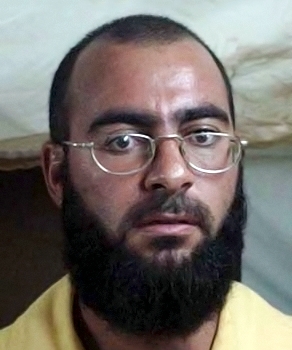
Ibrahim Awad Ibrahim Ali al-Badri, commonly known by his nom de guerreAbu Bakr al-Baghdadi, was an Iraqi militant who was the first caliph of the Islamic State (IS) from 2014 until his death in 2019.

The Yemeni civil war is an ongoing multilateral civil war that began in late 2014 mainly between the Rashad al-Alimi-led Presidential Leadership Council and the Mahdi al-Mashat-led Supreme Political Council, along with their supporters and allies. Both claim to constitute the official government of Yemen.

On 26 March 2015, Saudi Arabia, leading a coalition of nine countries from West Asia and North Africa, launched a military intervention in Yemen at the request of Yemeni president Abdrabbuh Mansur Hadi, who had been ousted from the capital, Sanaa, in September 2014 by Houthi insurgents during the Yemeni Civil War. Efforts by the United Nations to facilitate a power sharing arrangement under a new transitional government collapsed, leading to escalating conflict between government forces, Houthi rebels, and other armed groups, which culminated in Hadi fleeing to Saudi Arabia shortly before it began military operations in the country.